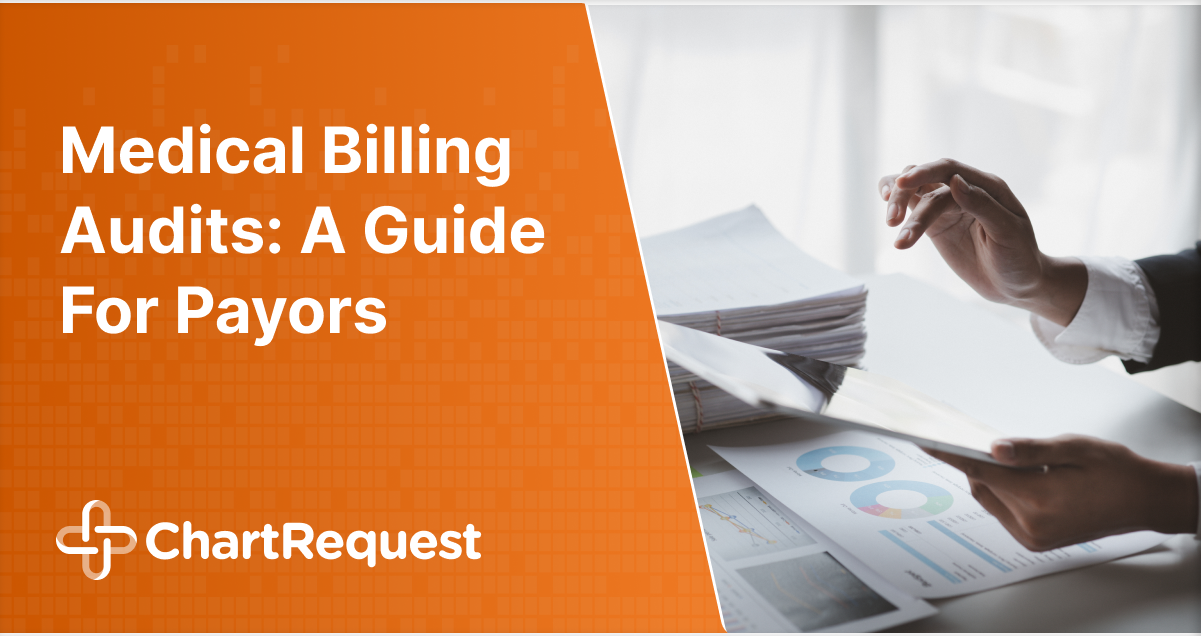Doctors lose around $125 billion a year in revenue due to billing errors. A medical billing audit prevents these issues by verifying that the claims submitted to insurance companies are accurate and compliant with legal and health policies.
A medical billing audit is when experts review and inspect the medical bills and records to ensure healthcare providers bill for the right services in the right way.
Errors in medical billing can significantly impact a hospital’s revenue. A study found that the more complex billing strategies can add up to $99,000 per clinician.
In this article, we’ll explore why medical billing audits are essential for catching and correcting billing practices.

What Are Medical Billing Audits?
Medical billing audits are not just about checking if the numbers add up. They dig deep into:
- Coding Accuracy: Make sure the medical procedures match the correct billing codes.
- Billing Procedures: Looking at how the bills are made, sent, and followed up on.
- Compliance with Laws: Ensuring all billing practices meet the strict laws and regulations of the healthcare industry.
A systematic review of outpatient billing practices revealed a strikingly low percentage of accurate coding, with only 16.1% of 100 random clinical visits being scored accurately by three separate coding specialists.
Why Do Medical Billing Audits Matter
A medical billing audit doesn’t just keep books tidy. It’s also about fairness, accuracy, and ensuring the sustainability of healthcare services.
Each audit confirms patients are billed correctly and healthcare providers are compensated appropriately for their services. This, in turn, contributes to a more trustworthy and efficient healthcare system.
A medical billing audit isn’t a one-and-done thing. It’s a consistent effort to keep healthcare providers’ financial health in top shape and ensure they’re reimbursed correctly for providing care.
Goals and Benefits of Medical Billing Audits
An estimate of up to 12% of medical claims are submitted with inaccurate codes. Such coding errors directly result in claim denials or delays in payment and cause financial instability for healthcare practices.
Here’s a breakdown of several medical billing audit benefits:
Improving Billing Accuracy
- Reducing errors: Did you know Over 80% of medical bills may contain errors? Mistakes happen, especially in something as intricate as medical billing. By closely examining billing practices, medical billing audits drastically reduce these errors.
- Ensuring accuracy: This means making sure every charge on a patient’s bill is correct and justified. Accuracy is key in billing because even a small mistake could mean a big headache later on.
Compliance with Regulations
- Following the rules: The healthcare world is full of rules and regulations. A medical billing audit helps ensure that everything is up to code. This includes staying in line with healthcare laws, which can often change.
- Keeping out of trouble: Audits help healthcare providers avoid legal issues and hefty fines by ensuring compliance with billing practices.
Enhancing Revenue Cycle Management
- Optimizing financial health: Accurate billing is not just about getting numbers right—it’s about economic stability. Correct billing helps providers get accurate reimbursement so they can provide continuous service.
- Smooth operations: Healthcare facilities can maintain better operational flow and financial stability with improved revenue cycle management.
Identifying Training Needs
- Spotting weak spots: Sometimes, a billing issue isn’t just a one-off mistake—it could indicate a need for improved training or new procedures.
- Boosting staff skills: Identifying these areas allows for targeted education efforts, enhancing the billing team’s skills and preventing future errors.
Types of Medical Billing Audits
Medical billing audits come in different forms, each with unique elements. These are:
- Internal Audits
- External Audits
- Focused Audits
- Random Audits
Let’s explore the differences between these types of medical billing audits.
1. Internal Audits
Think of internal audits as a DIY project. They’re conducted by the healthcare provider’s own audit team.
Internal audits help providers regularly check billing processes to catch any mishaps before someone else discovers the issue.
2. External Audits
For external audits, experts from outside a healthcare organization step in. These could be professionals from regulatory agencies or independent third-parties specializing in audits.
External audits can bring new perspectives and help uncover issues the healthcare provider might have missed.
3. Focused Audits
Focused audits zero in on specific areas that are either high-risk or have had issues previously. For example, they may uncover whether certain services, departments, or billing procedures need attention.
These audits help healthcare providers address potential problems in areas where mistakes are most likely to happen. It’s a proactive approach to stop issues before they become bigger ones.
4. Random Audits
As you may expect, random audits are conducted randomly. This means any area of a provider’s billing process could be chosen for review.
Random audits ensure that all areas of the billing process are regularly monitored and evaluated. They also help keep everyone on their toes to maintain high levels of accuracy.
How to Perform a Medical Billing Audit: 7 Easy Steps
Running a medical billing audit is crucial for ensuring that healthcare billing practices are accurate, comply with regulations, and are efficient. This guide simplifies the process into manageable steps, ensuring you can conduct a thorough audit without needing expert-level jargon or experience.
1: Define the Scope and Objectives
- Determine the Audit’s Focus: Choose between a comprehensive audit and concentrating on specific areas, such as high-risk services or particular coding practices.
- Set Clear Objectives: Outline what the audit aims to uncover, such as pinpointing billing inaccuracies, ensuring adherence to coding standards, or assessing the current billing process’s effectiveness.
2: Assemble the Audit Team
- Designate Responsibilities: Identify which staff members will participate in the audit. This could include auditors, coders, and billing specialists.
- Consider External Assistance: Sometimes, it’s beneficial to bring in experts specializing in medical billing audits to ensure an accurate evaluation.
3: Collect and Review Documentation
- Gather Relevant Documents: This involves collecting billing records, health records, insurance claim forms, and payment records for the audit period.
- Review for Accuracy and Compliance: Check these documents for correct billing code application, compliance with payer requirements, and consistency with clinical documentation.
4: Conduct the Audit
- Random Sample Audits: Choose a random selection of billing records to inspect for errors or inconsistencies.
- Focused Audits: If certain areas raise concerns, concentrate audits on these aspects.
- Use Checklists: Implement detailed checklists to review all billing and coding facets systematically.
5: Analyze Findings and Identify Issues
- Compile Audit Results: Summarize the audit findings, highlighting errors, discrepancies, or concerning patterns.
- Identify Root Causes: Determine the cause of these issues, such as a lack of training, outdated software, or ambiguous billing policies.
6: Report and Implement Changes
- Prepare an Audit Report: Document the audit procedure, findings, and recommendations for improvement. Detail any necessary corrective actions.
- Implement Recommendations: Collaborate with the relevant teams or staff members to correct the issues found. This might involve training staff, revising billing processes, or introducing new controls.
7: Monitor Progress and Conduct Regular Audits
- Track Improvements: Observe the effectiveness of the changes made as a result of the audit.
- Conduct Periodic Audits: Make regular audits a part of an ongoing effort to maintain billing accuracy and compliance.
Need Bulk Records for Medical Billing Audits?
Requesting bulk medical and billing records is an essential part of the audit review process, but health plan payors may find it challenging to obtain these records quickly. That’s where ChartRequest comes in.
RecordGateway is a streamlined bulk medical record retrieval solution that is purpose-built to support insurance companies. We have a large and growing network of over 10,000 providers, and our integration with CareQuality helps ensure we can process requests to any practice in the country.
Find out how we can streamline record retrieval for your next medical billing audit.


